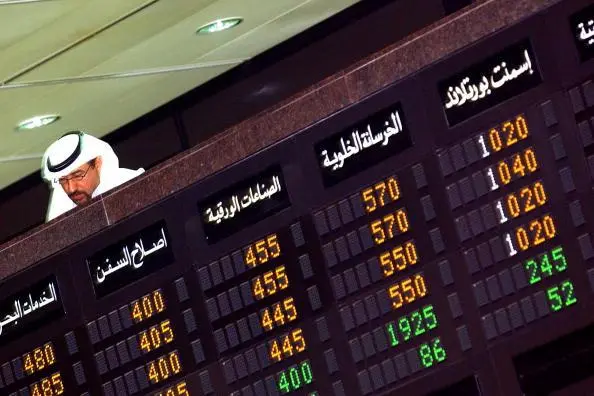PHOTO
The GCC market sealed a total of 105 merger & acquisition (M&A) transactions throughout in the first half (H1) of 2022, marking a growth of 25% relative to H1 2021, said Kuwaiti financial powerhouse Markaz in a new report.
With the exception of Qatari targets, the remaining markets recorded substantial growth year over year, it added.
Caisse de dépôt et placement du Québec (CPDQ), a Canadian institutional investor, reigned the top GCC M&A transactions with the announcement of a $5 billion transaction whereby it intends to acquire a 22% stake in DP World’s flagship assets including Jebel Ali Port, Jebel Ali Free Zone and National Industries Park.
Following this is Al Salam Bank, who recorded the second largest transaction with its proposed acquisition of Ithmaar Bank’s consumer banking businesses alongside a portfolio of sukuk issued by the Government of Bahrain and the group’s indirect shareholdings in Bank of Bahrain and Kuwait, Solidarity Group Holding, Mastercard Inc. and the Benefit Company. The two parties have penned a binding agreement whereby Al Salam Bank will acquire the aforementioned assets for a total consideration of $2.2 billion.
Moreover, Etihad Etisalat Company (Mobily) said it has received a letter from Emirates Telecommunications Group Company (e&) expressing the company’s interest in acquiring an additional stake in the company for $12.5 per Mobily share. If successful, e& would raise its holdings from 28% to 50% plus one share by means of a pre-conditional partial tender offer for an implied value of $2.1 billion.
In addition, the Public Investment Fund sealed a $1.5 billion deal whereby it acquired a 17% stake, or 625 million shares, in Kingdom Holding Company, at $2.4 per share. Note, this stake was acquired from HRH Prince Alwaleed bin Talal Al Saud, who subsequently reduced his stake to 78%. Lastly, Abu Dhabi National Oil Company (Adnoc) and Abu Dhabi National Energy Company (TAQA) are to acquire stakes in Abu Dhabi Future Energy Company (Masdar) from Mubadala Investment Company (Mubadala) for a total value of $1.3 billion.
The binding agreement outlines that Adnoc will acquire a 24% stake in Masdar’s renewable business with TAQA acquiring a 43% stake and Mubadala retaining the 33% stake in the business. In addition, Adnoc will acquire a 43% stake in Masdar’s new green hydrogen joint venture, while Mubadala and TAQA will retain 33% and 24% stakes, respectively.
Acquirers and targets
The majority of closed transactions during H1 2022 and H1 2021 were carried out by GCC acquirers. Of the total number of transactions that closed during H1 2022, GCC acquirers accounted for 69% while foreign acquirers accounted for 27%. The remaining 5% represents transactions for which the buyer information was not available.
GCC acquirers also dominated the market during H1 2021 as they accounted for 70% of the total number of closed transactions while foreign acquirers accounted for 15%. Once again, the remaining 14% represents transactions for which the buyer information was not available.
Furthermore, GCC acquirers primarily invested in companies within their local markets and in international markets, and targeted regional companies to a lesser extent. Throughout H1 2022, GCC acquirers closed a total of 60 transactions within their local markets, compared to 49 transactions in H1 2021 . In addition, GCC acquirers sealed 46 cross-border transactions, relative to 29 cross-border transactions in H1 2021. It is worth noting that UAE buyers accounted for approximately 60% of the total number of cross-border transactions that closed, followed by Saudi Arabia and Bahrain, who accounted for 21% and 11%, respectively.
Foreign buyers
The GCC market received a relatively greater level of interest from foreign buyers in H1 2022 compared to H1 2021. Throughout H1 2022, foreign buyers closed 28 transactions compared to 13 throughout H1 2021, which implies a growth rate of 114% year over year and reinforces the idea that investor confidence has strengthened with time post-COVID. It is worth noting that foreign buyers demonstrated a particular interest in Kuwaiti, Saudi and UAE companies. The UAE continues to be one of the most attractive markets relative to its peers while Omani companies emerged as attractive contenders following a period with no foreign activity throughout H1 2021 (closed).
Sectorial view
Moreover, the transactions that closed throughout H1 2022 targeted companies that operate across various sectors, highlighting another trend that has remained strong throughout the past few quarters. The sectors that witnessed the greatest level of activity throughout H1 2022 were the Financials, Consumer Discretionary and Information Technology sectors. Collectively, these three sectors accounted for over 48% of the transactions that closed during the first six months of the year.
Deals in the pipeline
By the end H1 2022, there was a total of 68 announced transactions in the pipeline, compared to 62 transactions in H1 2021. The majority of these transactions involved Saudi and UAE targets, who accounted for 41% and 34% of the total number of announced deals, followed by Kuwait at 12%. The remaining transactions involved Bahraini, Omani and Qatari targets, who collectively accounted for 13%. With the exception of Oman, each of the GCC market ended H1 2022 with a greater number of announced transactions compared to H1 2022.
Copyright 2022 Al Hilal Publishing and Marketing Group Provided by SyndiGate Media Inc. (Syndigate.info).




















